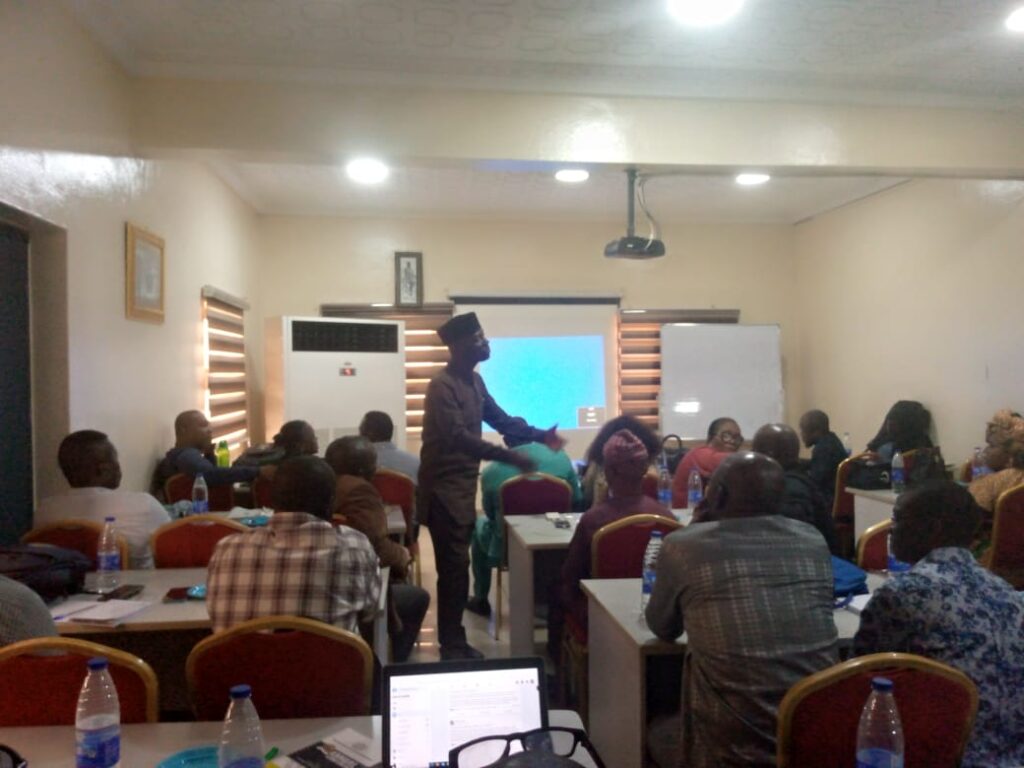The 2024 Mental Health in Journalism Summit organised by The Self-Investigation recently held online on October 8- 10 during which essential conversations on mental health of journalists globally were discussed.
The Self- Investigation, a professional training and coaching body dedicated to sustaining journalism to enhance journalists’ well-being
Our correspondent, Rhoda Olurunfemi who covered the various sessions at the three-day global summit share the major highlights from the various speakers:
- Journalists should make their mental health a priority to prevent burnout.
- Their life is more important than the work.
- Need to provide tools on ways to prioritize well-being.
- The profession really relies on funds from sponsors.
- Freedom to operate and putting right structure into place.
- Physical threats faced by journalists affects their families.
- Online harassments affect media practice.
- Some journalists are already quitting ahead of the US election due to burnout.
- Structure issues- local journalists are needed to do their job because there are areas not covered.
At the ‘Assume the Best: How a New Theory of Humanity is Changing How We Report, Respond, and Run News Rooms’, the Anchor, Emma Thamasson took participants through a session on human selfish and prone (nature) to violence, emphasizing that government, armies police who are supposed to maintain order have been corrupted hence failed in its duties and trend of laziness among children at school who ended up workforce entity.
She highlighted the need to balance powerful negativity bias with a dose of positivity as journalists to make for more hopeful stories, happier newsrooms and audience.
The Mental Health in Journalism Pledge was shared and participants were asked to add comments.
Journalists were admonished to remember that the power of the profession’s values is the reason for motivation. Reminding themselves why they are journalists would dampen stress, increase willpower, close achievement gaps, improve accuracy and increase openness.
Lara Ayoub, Founder of the Media Lab, took a practical session on positive affirmations and
mediations, titled, ‘Prioritizing Self- Care: Tools to Combat Burnout and Stress for Journalists’.
She explained that positive affirmations and meditation keeps the mind settled, and helps it to see the problem to solve.
Participants had an exercise experience called the ‘Breath System’-breath in – hold for four seconds and breath out. She pointed out that the technique eases fear, panic attack and anxiety.
At the ‘How Are You? Psychological First Aid (PFA) For Women Journalists’, female journalists were enlightened on ways to cope with psychological distress and emotional consequences emerging from covering armed conflict, violence and human suffering.
The session was taken by Nicole Martin, Vita Activa, Executive Director as well as Camila Andrea and Luisa Ortiz Perez, team members of Vita Activa.
The session focused on dealing with the stigma of seeking mental health services and helping a colleague suffering or needing support.
Nicole Martin emphasized on ‘Empathic Interview Questions’ such as ‘How are you?, How is your body, heart/ how do you feel?’ How can we support you today?’ as ways to help the situation.
He said it is good to ‘listen to yourself and remember you are not alone in this’
Other sessions for day two included ‘Voices of Resilience: Overcoming Mental Health Challenges’, ‘Journalism’s Open Secret: When Alcohol Use Turns Into Abuse’, ‘Beyond Journalism: Lesson on Mental Health and Well-being from Other Industries
The last day of the summit started at 12: 00 with a keynote session, Moral Injury and Moral Courage: How Journalist Can Protect Their Mental Health When Faced With Stories That Impact Their Conscience’ had two speakers, Anthony Feinstein, Professor, University of Toronto and Michelle Shepherd, Journalist/Filmmaker who discussed about concepts of moral injury and moral courage in journalism.
The session focused on Feinstein’s ground breaking research and Shephard’s extensive coverage of terrorism and civil rights, which focused on how journalists navigate the ethical dilemmas of their work while maintaining their mental health.
They also offered insights on how moral courage drives journalists to protect democracy and the essential lessons they can teach us about managing mental health challenges in today’s complex environment.
‘Ensuring the Future of Work Enables the Future of Journalism’ focused on how leaders can turn mental health policies into effective practices within their organizations.
Kevin Delaney, CEO and Editor-in-Chief of Charter, a media company fully focused on the future of work, discussing on the trends in the field and whether it’s possible to apply any of them to the media amid continuous business crisis and the disruption of artificial intelligence.


